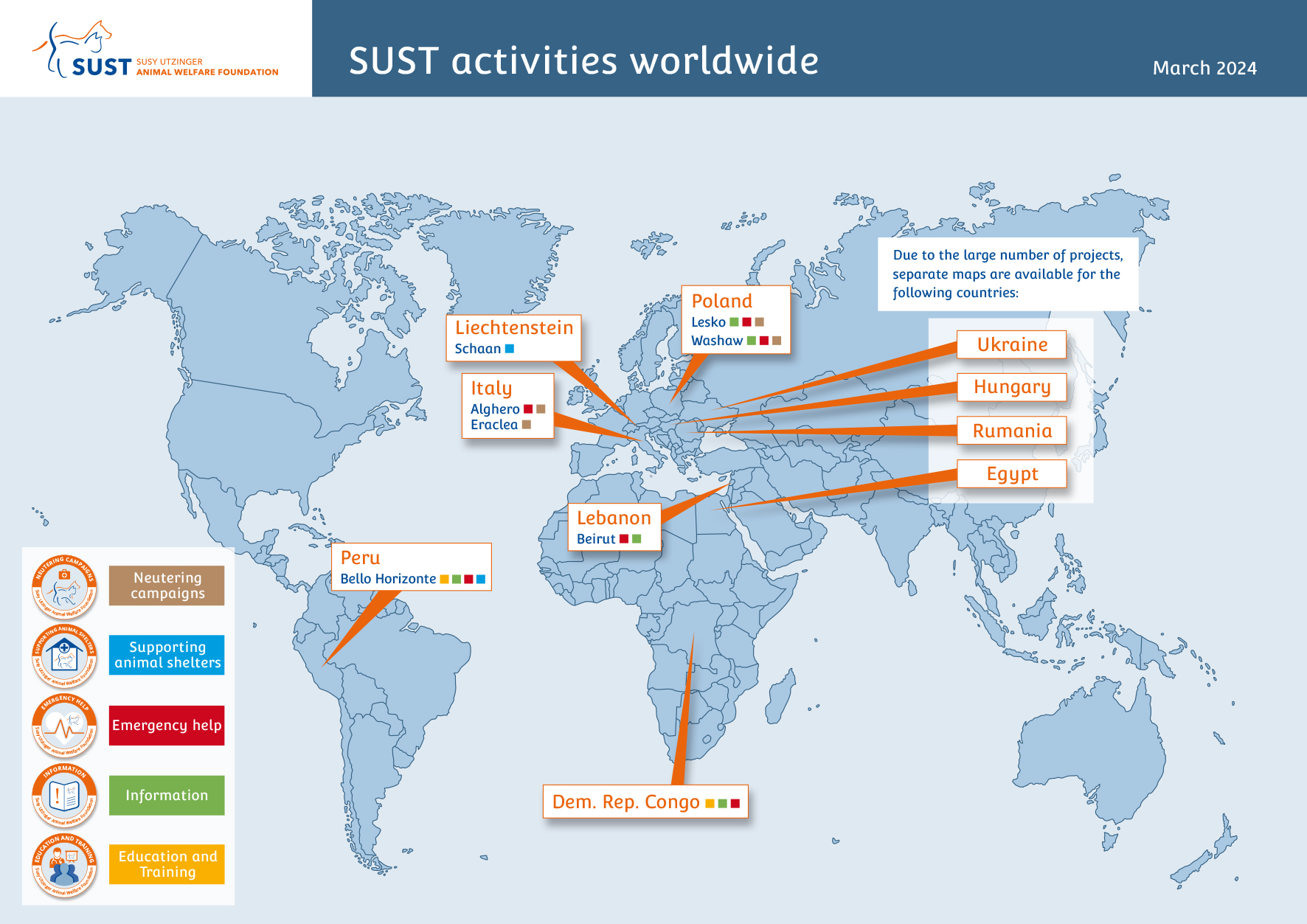All over the world, countless animals in overcrowded shelters live sadly or struggle for their survival in wild colonies. Day after day, even today, animals that have become inconvenient are still abandoned, deported or mistakenly kept for lack of better knowledge. The Susy Utzinger Animal Welfare Foundation contributes with effective means to the fact that animal suffering can be reduced or even prevented sustainably.
This animal welfare work is based on four pillars:
1. Competence Centre Animal Shelter: Animal shelters become high-quality transition stations for homeless animals, where animals are kept and promoted in a way that is appropriate for their species and finally transferred to good new places.
2. Neutering campaigns: Braking the animal misery
3. Education and training of specialists: Specialists are given the opportunity to optimise their knowledge and improve animal welfare.
4. Education of the population: love of animals with heart and mind
These four elements form the important basis for sustainable animal welfare projects.
Those animals that are not yet able to benefit from the effects of this reconstruction work and have been born into a world where they are not wanted need the emergency aid of SUST.
Emergency aid as a basis for sustainable animal welfare projects: saving lives of animals
